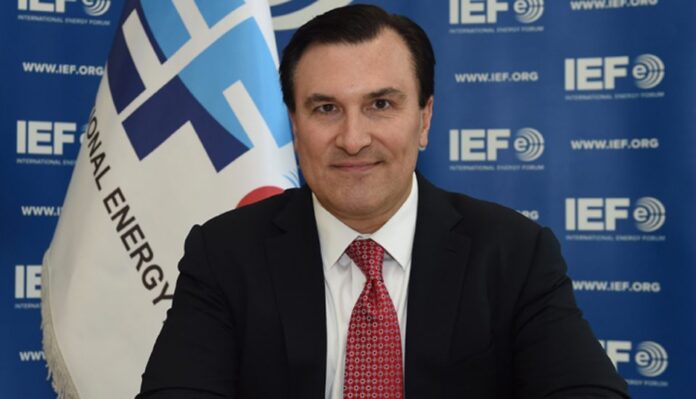IEF chief emphasizes crucial role of natural gas in evolving energy transition
CHIGOZIE AMADI
Secretary-General of the International Energy Forum (IEF), Joseph McMonigle, has underscored the pivotal role of natural gas in the energy transition in a keynote address to the Singapore International Energy Week (SIEW).
Reflecting on recent developments, Mr McMonigle pointed to the evolving discourse on the energy transition and emphasized the necessity of integrating natural gas into future energy strategies.
“The debate about the energy transition has shifted significantly over the past three years,” McMonigle remarked. “Three key events have shaped the global discourse: the 2021 gas shock, which highlighted the risks of under-investment in traditional energy; Europe’s pivot to U.S. LNG in 2022, which showed that renewables alone are not sufficient to meet demand; and COP28 in 2023, where the energy industry was invited to the climate table, bringing a much-needed pragmatism to the net-zero debate.”
McMonigle stressed that the energy transition is multifaceted and complex, requiring careful management. Central to this transition, he argued, is natural gas. “The narrative around natural gas has evolved,” he said. “For too long, it was seen as a temporary bridge. Today, I stand before you to say natural gas is not just a bridge—it is a destination.”
Citing the importance of natural gas in meeting rising global energy demand and reducing emissions, Mr McMonigle highlighted the fuel’s versatility and cleaner-burning properties. “Natural gas emits 50-60 percent less CO2 than coal, and in the U.S., the coal-to-gas switch has removed half a billion tonnes of CO2—more than all the wind and solar installed in the last 15 years combined.”
LNG was another key topic in Mr McMonigle’s address. “LNG is enhancing global energy security by diversifying supply routes and providing flexibility to importers. As the world strives for net-zero, the demand for natural gas will continue to grow, particularly in hard-to-decarbonize sectors.”
Mr McMonigle also spotlighted technological innovations such as Carbon Capture, Utilization, and Storage (CCUS), which he described as essential to keeping natural gas as a low-carbon solution. “By capturing emissions from natural gas production, we can significantly reduce its carbon footprint,” he noted. “Many leading energy companies are already investing heavily in CCUS, ensuring that natural gas remains part of the long-term solution to decarbonization.”
He further emphasized the role of natural gas in producing low-carbon hydrogen, a key element in decarbonizing sectors like heavy transport and industry. “Hydrogen is often called the fuel of the future, and natural gas is the most practical way to scale its production today.”
Looking ahead, Mr McMonigle reinforced the bullish outlook for natural gas and LNG. “The IEF’s data shows sustained demand growth for natural gas, especially in fast-growing regions like Asia. LNG will remain crucial in ensuring energy security, with new liquefaction projects on the horizon to meet global demand.”
In closing, McMonigle called for continued investment in infrastructure, technology, and policies that support natural gas and LNG. “Natural gas is not just the fuel of the past or a bridge to the future—it is the fuel of the future itself. Its role in ensuring an abundant, reliable, and cleaner energy system is undeniable.”

























